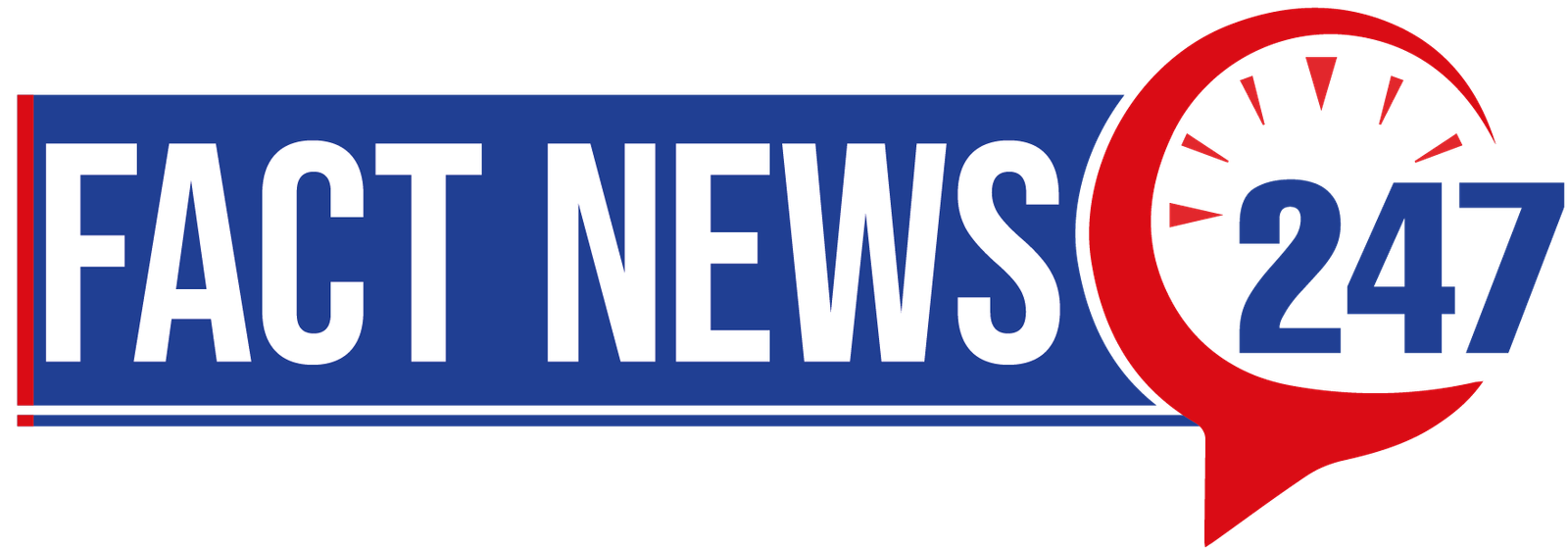 Time often seems to crawl when we’re eagerly anticipating something or stuck in a monotonous situation. Many people wonder how to make time go faster, especially when waiting for an important event or trying to get through a boring day. This universal desire to speed up the clock has led to the development of various techniques and strategies that can help alter our perception of time.
Time often seems to crawl when we’re eagerly anticipating something or stuck in a monotonous situation. Many people wonder how to make time go faster, especially when waiting for an important event or trying to get through a boring day. This universal desire to speed up the clock has led to the development of various techniques and strategies that can help alter our perception of time.
In this article, we’ll explore ten proven methods to make time go by faster. These techniques range from engaging in activities and using time blocking to achieve a flow state, and can be applied in various settings – at home, at work, or even in games like Minecraft or GTA 5. Whether you’re looking to make time fly during a dull class or simply want to know how to make the hours pass more quickly without doing anything, these strategies will provide valuable insights to help you navigate those slow-moving moments.
Stay Busy and Engaged
One of the most effective ways to make time go faster is to stay busy and engaged in activities. When people are fully immersed in what they’re doing, they often lose track of time, making it seem to pass more quickly. This phenomenon is closely related to the concept of “flow,” a state of mind where an individual is completely absorbed in an activity.
Find Flow in Your Activities
Flow is achieved when a person’s skills are challenged by trying to meet a cherished goal. To enter this state, it’s crucial to find a balance between the difficulty of the task and one’s abilities. If a task is too easy, boredom sets in, while an overly difficult task can lead to anxiety. Both of these emotions act as barriers to flow.
To achieve flow, individuals should:
- Define one clear outcome to focus on intently without distractions
- Do one thing at a time
- Engage in activities that require high motivation and concentration
By following these principles, people can become fully immersed in their tasks, losing awareness of time passing. This approach aligns with Peter Drucker’s philosophy: “Effectiveness is doing the right things.” By focusing on one task at a time, individuals can be more productive and achieve better results.
Break Tasks into Smaller Chunks
Breaking down large projects into smaller, manageable tasks has several benefits:
- It makes large tasks seem more approachable and doable
- It reduces procrastination by providing clear starting points
- It allows for more frequent rewards and dopamine rushes, keeping motivation high
Time chunking is a technique that involves dividing time into segments and dedicating each segment to specific tasks. This method has several advantages:
- Improved focus on one project at a time
- Better control over producing effective outcomes
- Reduced stress and burnout
- Decreased multitasking, which can cost up to 40% of productive time
A popular time chunking method is the Pomodoro Technique, which involves working in 25-minute intervals separated by short breaks. This technique has proven effective for many people in overcoming procrastination and staying motivated throughout the day.
Set Timers for Tasks
Using timers can be a powerful tool to enhance productivity and make time seem to pass more quickly. Here are some ways to effectively use timers:
- Set a timer for a specific duration (e.g., 20-30 minutes) and focus intensely on a task until it goes off
- Use timers to challenge yourself to complete tasks within a set timeframe
- Employ the Pomodoro Technique: 25 minutes of work followed by a 5-minute break
The benefits of using timers include:
- Improved time management
- Increased efficiency and focus
- Enhanced productivity
- Better evaluation of time spent on tasks
For example, when faced with a tedious project, setting a timer for 15-30 minutes can help individuals accomplish a significant amount of work without feeling overwhelmed. This technique can be particularly useful for tasks that seem repetitive or monotonous.
By staying busy and engaged through finding flow, breaking tasks into smaller chunks, and using timers, individuals can significantly alter their perception of time. These techniques not only help make time go faster but also increase productivity and overall satisfaction with daily activities. Whether at work, home, or in educational settings, these strategies can be applied to various situations to help individuals navigate through periods that might otherwise feel slow or unproductive.
Also Read: How Many Weeks Left In 2024
Distract Your Mind
When time seems to drag on, distracting the mind can be an effective strategy to make it go faster. By engaging in activities that capture attention and shift focus away from the passage of time, individuals can alter their perception of how quickly time is moving. Here are some proven techniques to distract the mind and make time fly by:
Listen to Music or Podcasts
One of the most enjoyable ways to speed up time is by listening to music or podcasts. Studies have shown that 90% of workers perform better when listening to music, completing tasks more accurately and efficiently. Music has the power to influence mood, pumping people up, calming them down, or simply making them feel happier.
For those who prefer spoken content, podcasts offer an excellent alternative. With over 150 million podcasts available, there’s something for everyone. Podcasts can entertain, encourage, or expand knowledge on various topics. Here are some podcast recommendations for different purposes:
- For self-betterment: The Skinny Confidential: Him & Her podcast
- For laughs and casual conversations: Good Guys podcast with Josh Peck and Ben Stoffer
- For inspiration: I Am America hosted by Tracee Ellis Ross
- For career growth: The Career Contessa podcast
- For pop culture enthusiasts: The Not Skinny But Not Fat podcast with Amanda Hirsch
Experimenting with different types of music or podcasts can help find the perfect audio companion to make time go faster, whether at work, home, or during commutes.
Play Mental Games
Creating mental challenges can transform repetitive or boring tasks into engaging activities. By setting personal goals or turning tasks into games, individuals can combat boredom and make time pass more quickly. Here are some ways to incorporate mental games into daily routines:
- Set time-based challenges: Try to complete a task faster than previous attempts.
- Create point systems: Assign points to different aspects of a task and aim for a high score.
- Imagine scenarios: Visualize being in a different setting or role while performing routine tasks.
- Practice memory exercises: Try to memorize details of surroundings or information related to the task at hand.
By engaging the mind in these ways, attention shifts from the passage of time to the mental challenge, making time seem to move more quickly.
Practice Mindfulness
Mindfulness techniques can have a paradoxical effect on time perception. While being present in the moment might seem to slow time down, it can actually help make time go faster by fully engaging with the current experience. Here are some mindfulness practices to try:
- Street meditation: Transform idle moments, such as waiting in line or sitting in traffic, into opportunities for mindfulness. Instead of automatically reaching for a phone, observe the surroundings and internal sensations.
- Focused attention meditation: Keep attention focused on a particular object or sensation, such as breathing. This practice helps train the brain to maintain concentration and return focus when distracted.
- Open monitoring meditation: Allow attention to flow from moment to moment without focusing on any particular object or sensation. This advanced practice helps disengage from distractions and observe thought patterns.
- Body awareness: Focus on physical sensations, such as the pressure of sitting in a chair or the weight of crossed legs.
By practicing mindfulness, individuals can interrupt the momentum of distraction and create space to choose how to direct their attention. This conscious engagement with the present moment can alter the perception of time passing, making it seem to move more quickly.
Incorporating these techniques – listening to music or podcasts, playing mental games, and practicing mindfulness – can help distract the mind and make time go faster in various situations. By actively engaging with these strategies, individuals can transform idle or monotonous moments into opportunities for entertainment, growth, and increased productivity.
Also Read: How Many Weeks Left In 2024
Change Your Environment
Changing one’s environment can have a significant impact on how time is perceived and experienced. By altering the surroundings and routines, individuals can create a sense of novelty that makes time seem to pass more quickly. Here are some effective strategies to change the environment and influence time perception:
Rearrange Your Workspace
One simple yet powerful way to change the environment is to rearrange the workspace. This can involve moving the desk, adjusting the lighting, or adding plants to the area. A new environment has the potential to boost creativity and focus, which in turn can make time feel like it’s moving faster. When the brain encounters unfamiliar surroundings, it tends to register more memories, creating the illusion that more time has passed.
For those who have the flexibility, working from a different location can be even more effective. This could mean:
- Relocating to a different room in the house
- Working from a local library or café
- Visiting a friend’s house (with permission)
- Renting an office space or using a co-working facility
These changes in scenery can help recharge one’s batteries and energize them for work, making the time fly by more quickly.
Take Short Breaks
Taking regular short breaks throughout the day can significantly alter time perception and improve overall productivity. These micro-breaks, even if they last only a few minutes, can prevent exhaustion and boost performance. Some effective break activities include:
- Stretching or light exercise
- Snacking
- Gazing out of the window
- Chatting with colleagues
- Watching a short, interesting video
It’s important to note that the timing and location of breaks matter. Shorter breaks are more effective in the morning, while longer breaks are beneficial in the late afternoon when fatigue tends to worsen. Additionally, taking breaks outdoors or in green spaces has been shown to have a greater recharging potential than staying at one’s desk.
Switch Up Your Routine
Changing daily routines can help stimulate the brain and inspire new ideas, which in turn can make time seem to pass more quickly. Some ways to switch up routines include:
- Taking a new route to work
- Eating lunch at a different time
- Experimenting with a new hobby
- Saying yes to random opportunities
- Prioritizing novelty over familiarity
By breaking away from habits and routines, which are often associated with a faster perception of time passing, individuals can create a sense of time expansion. This is because the brain registers more memories when experiencing new things, making it feel like more time has elapsed.
Implementing these changes in the environment and routine can help individuals achieve a state of flow, where their skills and the challenges at hand match well, causing them to lose their sense of time. This state, discovered by psychologist Mihaly Csikszentmihalyi, can make time feel like it’s passing more quickly and enjoyably.
It’s worth noting that while these strategies can help make time go faster, they can also have the paradoxical effect of slowing down time perception in retrospect. This is because new experiences and memories create a richer, more detailed mental timeline, making the period feel longer when looking back on it.
By rearranging workspaces, taking strategic breaks, and switching up routines, individuals can create an environment that not only makes time seem to pass more quickly but also enhances productivity and well-being. These changes provide a fresh perspective and help break the monotony that often leads to a sluggish perception of time.
Also Read: How Many Weeks Left In 2024
Conclusion
The techniques explored in this article offer a range of strategies to alter our perception of time and make it seem to pass more quickly. By staying busy, distracting the mind, and changing our environment, we can transform dull moments into opportunities for growth and productivity. These methods not only help to speed up time but also have a positive impact on our overall well-being and effectiveness in various aspects of life.
To wrap up, the key to making time go faster lies in actively engaging with our surroundings and tasks, rather than passively waiting for time to pass. By putting these strategies into action, individuals can take control of their time perception and make the most of every moment. Whether at work, home, or in challenging situations, these techniques provide valuable tools to navigate through periods that might otherwise feel slow or unproductive.
FAQs
1. What are some effective ways to make time seem to pass more quickly?
To make time feel like it’s moving faster, avoid constantly checking the time. Organize your day into smaller, manageable segments and break down large tasks into simpler steps. Background music or TV can help distract you, and engaging in a hobby or enjoyable activity can also speed up your perception of time.
2. What strategies can help accelerate the perception of time?
To make time go faster, try not to watch the clock too much. Establish a routine that you can predict and stick to, aim to reach a state of flow in your activities, and divide your time into blocks. Break down unpleasant tasks, have something playing in the background, engage in enjoyable activities, and challenge your mind with puzzles or games.
3. How can you quickly pass 10 minutes when you’re waiting for something?
To make 10 minutes fly by, especially when anticipating an event, divide the time into shorter intervals. You could watch videos, listen to music, read, browse the internet, or count backwards from 100. Setting goals, doing quick chores, or having a conversation with someone can also help pass the time effectively.
4. How can you make a period of 10 days feel shorter?
To make 10 days pass more quickly, focus on having fun and finding activities that deeply engage you. Regular walks and staying busy with tasks or hobbies can help. Establishing a daily routine, tackling household chores, reading, and keeping in touch with friends and family are also effective ways to speed up the perceived passage of days.



























+ There are no comments
Add yours